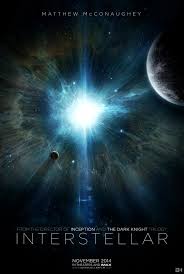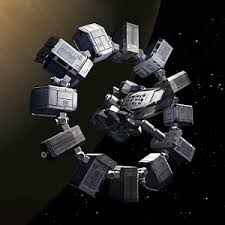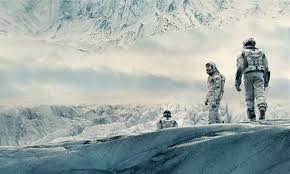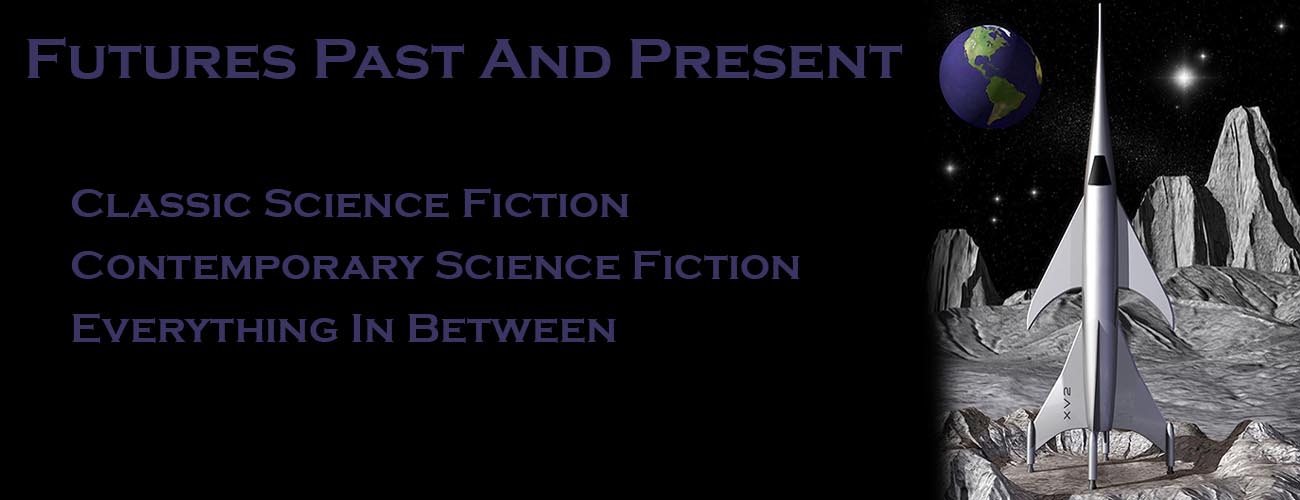 Warning: There is an image at the end of this post that may not be suitable for young people or those with weak stomaches.
Warning: There is an image at the end of this post that may not be suitable for young people or those with weak stomaches.
I took my son to see Interstellar yesterday. All I can say is Wow, just…wow.
All right, obviously that’s not all I can say. Interstellar isn’t perfect, but it’s a highly ambitious movie that gets so many things right. But before we get to the inevitable comparisons with 2001, along with a rant, here’s a brief (partial) synopsis of the film.
The setting is some time in the not too distant future. The world has suffered some sort of global catastrophe in which a blight is destroying crops. All the wheat is gone, okra is on its way out, and the only thing left is corn. Dust storms are starting to become common events.
Cooper (Mathew McConaughey) is a former pilot and engineer who is now a farmer. He lives with his son Tom, daughter Murph (Mackenzie Foy), and father-in-law (John Lithgow) on a farm and struggles to survive. His wife died of a brain tumor that would have been treatable before the world economy started to collapse.
Cooper is called to a parent-teacher meeting with the principal and Murph’s teacher. The principal tells him that Tom is a good student but not good enough to go to college. He’ll have to be a farmer. The conversation implies that unless you’re one of the very brightest, you’re required to be a farmer.
The conversation turns to Murph. She’s brought one of Cooper’s old textbooks to school. This has caused some problems, including several fistfights between Murph and some of the other kids over how the Apollo missions are presented. The teacher (Collette Wolfe) tells Cooper that textbook has been replaced by the federally approved text, in which the moon landings are presented as hoaxes perpetrated to bankrupt the Soviet Union. More on this point later. When Cooper returns to his truck, Murph asks how it went. He responds “I got you suspended.”
Murph is having issues at home as well. One wall of her room is floor to ceiling bookshelves. She claims there’s a ghost in her room who is knocking books off the shelves. It’s not a ghost but something trying to communicate in binary by using a gravitational anomaly to leave dust trails in the floor. Cooper deciphers the code and realizes it’s a set a of coordinates.
He goes to that location and discovers a clandestine space program. NASA (supposedly disbanded) is now a covert operation. A wormhole appeared near Saturn some years ago (placed there by someone), and a mission was sent through to scout for planets. There were twelve team members on that mission, and they each went to a different planet. One of Cooper’s old professors, played by Michael Caine, recruits him.
So Cooper agrees to be the pilot on the followup mission to retrieve as many of the original team members as they can and find a planet where the human race can settle. That’s Plan A. The blight will eventually cause the oxygen in the atmosphere to be use up. (There was a bit of handwaving at this point.) Plan B is a collection of frozen embryos to be used to seed the human race on a suitable planet if Plan A fails.
Murph doesn’t take this well.
If you saw any of the trailers shown in theaters back in the summer, this is pretty much what you got. The story as I’ve summarized it to this point is about the first 45 minutes. The movie clocks in at just under three hours, so there’s a lot more. I’ll not go into too much more, because there are several twists in the plot, and I want to avoid spoilers.
The blight is pretty sketchy. Even if the wheat is gone, there’s still barley, oats, and a number of other grains, but they aren’t mentioned. And since most of the oxygen is produced by phytoplankton in the ocean, I’m not sure the run out of oxygen scenario holds up.
 The physics is impressive. Interstellar presents some pretty abstract concepts in clear ways. The characters even used Newton’s Third Law of Motion correctly and identified it as such. I wish some of my students knew it that well. Several times we see what is happening in space, and (with the occasional exception of the soundtrack) there was no sound. The only real problem I had with the physics was near the end and involved a black hole. And yes, there are echoes of 2001 A Space Odyssey near the end. But this ending drops the mysticism of that movie and gives us something full of hope and understanding. And none of the robots turn out to be HAL.
The physics is impressive. Interstellar presents some pretty abstract concepts in clear ways. The characters even used Newton’s Third Law of Motion correctly and identified it as such. I wish some of my students knew it that well. Several times we see what is happening in space, and (with the occasional exception of the soundtrack) there was no sound. The only real problem I had with the physics was near the end and involved a black hole. And yes, there are echoes of 2001 A Space Odyssey near the end. But this ending drops the mysticism of that movie and gives us something full of hope and understanding. And none of the robots turn out to be HAL.
There were a couple of character relationships that seemed rushed at the end, especially the scene that took place in a hospital room. A few more minutes would have really fleshed out these scenes. But these are minor quibbles.
Interstellar is what science fiction movies should be. The film was intelligent, moving, suspenseful. It was thought provoking and challenging. I don’t think I’ve ever seen a film that presents the human cost of long space voyages in such a powerful manner. I mean, how do you tell your ten year old daughter that you’re going away and that when you come back the two of you will be the same age?
And the sense of isolation when Cooper and his crew begin to fulfill their mission was so palpable that you could cut it with a knife. When they find a survivor in cold sleep, he breaks into sobs when they wake him. He’d put himself into cold sleep and didn’t program a wake up time because he never expected to see anyone again.
The movie doesn’t sugar coat the cost of exploration. It’s not easy to do something that’s never been done before. Explorers and pioneers have always had a high death rate. It comes with the job. But just because something is hard or dangerous isn’t a reason not to make the attempt. Sometimes the best reason to reach for the stars is because it’s hard.
Which brings us to the message in the movie. This isn’t a popular movie with some people. It’s been described as the anti-Avatar. I think that’s a good description. And I despised Avatar, in spite of the awesome eye-candy special effects. Interstellar isn’t about worshiping the Earth and some mystical life force. Rather, it says that the universe is a hostile place, and sometimes the best you can do is leave detailed enough records so that those who come after you can figure out what killed you.
I realize that last sentence sounds dark, but think about it. The universe is full of dangers. It’s not through New Age mumbo-jumbo that society and technology advance. It’s through observation, data collection, and logic. Cooper explains this to Murph early in the movie when they’re talking about her ghost. It’s a theme that resonates throughout the film. There’s a reason science fiction contains the word “science” . It’s about how discovery and investigation and exploration are essential to humanity. Technology applied well produces better lives for all mankind.
Which brings us back to the conversation in the parent-teacher meeting regarding the Apollo missions. Landing on the Moon was one of the greatest achievements in history. And then we stopped. We turned our tails and ran. We failed to dream.
And there are voices in the culture that want to kill those dreams and minimize those achievements. Don’t believe me?
The Rosetta mission just landed a probe on a comet. This was achieved in spite of some glitches in the process. Astronomer Dr. Matt Taylor was part of the team that pulled this off. You would think that would qualify him for Badass of the Year.
 Instead some folks got their panties in a twist and threw a giant hissy fit, Why? Because he had the insensitivity to wear this shirt. (For a good response, see Dave Freer’s post here.)
Instead some folks got their panties in a twist and threw a giant hissy fit, Why? Because he had the insensitivity to wear this shirt. (For a good response, see Dave Freer’s post here.)
Really? A historic first, and some people can’t see past his shirt. A shirt that was made by a woman, BTW. The cool greatness of the event was eclipsed by the shrill shrieking of how far civilization was set back by Dr. Taylor’s fashion sense. I now want one of those shirts, but alas, they’re sold out.
When we’re more concerned about offending someone than the historic achievements that take us to new places in the universe and expand our knowledge, we’re in trouble. Fortunately, not everyone is walking down that road. Christopher Nolan isn’t, and for that I’m thankful. He hasn’t forgotten what it means to dream.
If you haven’t seen Interstellar, do so. You’ll be glad you did.


Pingback: An Open Letter to the AAS | Adventures Fantastic